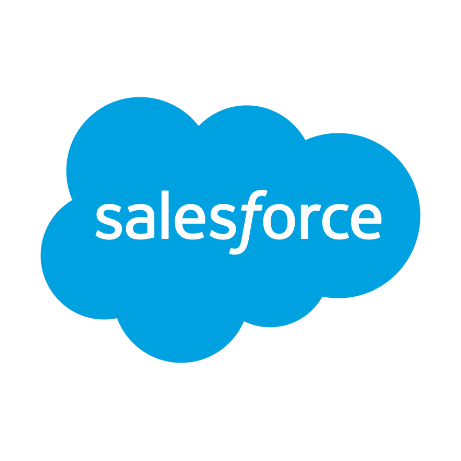What is Salesforce? An In-Depth Guide
Salesforce is a robust cloud-based software company that specialises in customer relationship management (CRM). It’s designed to streamline business operations by managing company interactions with current and potential customers. Its versatility enables companies to connect with clients, streamline processes, and improve profitability by managing customer information and interactions on a single platform.
The platform offers a comprehensive suite of products covering various aspects of business operations including marketing, sales, customer service, and commerce. With its AI-powered analytics and customisable applications, Salesforce not only facilitates improved data management and analytics but also greatly enhances the customer experience. Professionals looking to adapt to Salesforce can benefit from a range of certification programmes that ensure adept usage of the platform’s capabilities.
Key Takeaways
- Salesforce is a leading CRM platform aiding in business efficiency and customer interactions.
- It offers a diverse range of products and tools to optimise sales, marketing, and customer service.
- The platform supports improved data handling and customer experience, with opportunities for professional education and certification.
Understanding Salesforce
Salesforce, a leader in cloud-based CRM software, provides businesses with tools to streamline customer interactions, sales processes, and service offerings.
CRM Software Essentials
Salesforce has revolutionised the Customer Relationship Management (CRM) landscape by offering a comprehensive suite designed to manage customer information, automate marketing, streamline sales pipelines, and enhance customer service. It operates on a Service as a Software (SaaS) model, which allows businesses to use the CRM platform without the need for on-premises hardware or software.
Key Components of Salesforce CRM:
- Contact Management: Centralises customer data, enabling personalised interactions.
- Sales Automation: Helps to drive sales through lead tracking and pipeline management.
- Marketing Tools: Facilitates campaign management and targeting.
- Customer Support: Improves customer service with case tracking and resolution.
Cloud-Based Solutions
As a cloud-based CRM software, Salesforce provides accessibility and flexibility, allowing teams to work from anywhere with an internet connection. This approach is part of a broader category known as Platform as a Service (PaaS), which not only gives organisations the tools to customise applications to their specific needs but also to develop new applications within the platform.
Advantages of Salesforce’s Cloud-Based Nature:
- Scalability: Easily scales to meet the changing needs of the business.
- Integration: Seamlessly integrates with other applications and data sources.
- Innovation: Continuously updates and provides new features without disruption.
- Cost-Effectiveness: Reduces upfront costs and shifts the expense to a subscription-based model.
Salesforce’s ecosystem supports businesses by offering powerful, adaptable, and integrated solutions that transform how they connect with their customers.
Core Salesforce Products
Salesforce offers a robust suite of products designed for various aspects of business operations. These applications and platforms are tailored to enhance sales performance, improve customer service, and deliver industry-specific functionalities.
Sales and Marketing Applications
Salesforce Sales Cloud streamlines the sales process by managing sales activities, tracking customer interactions, and accessing insights on performance. It’s a comprehensive CRM solution that helps businesses to grow revenue and increase efficiency.
Salesforce Marketing Cloud is a digital marketing platform that enables the execution of campaigns across multiple channels like email, social media, and digital advertising. It’s designed to create personalised customer journeys and measure the effectiveness of marketing strategies.
Customer Support Platforms
The Salesforce Service Cloud is dedicated to improving customer service. It equips teams with tools to manage customer support requests, automate service processes, and provide real-time responses. This platform helps businesses to offer personalised customer support.
Industry-Specific Solutions
Salesforce offers tailored solutions for various industries, delivering bespoke functionality to meet unique sector needs. Salesforce Industry Clouds include applications for healthcare, finance, retail, and more, ensuring that businesses have the right tools to address the challenges of their specific market.
Through platforms such as Salesforce Analytics Cloud and Salesforce App Cloud, businesses gain the capabilities for in-depth analytics and custom application development, respectively. Salesforce’s multi-cloud ecosystem, including Salesforce Commerce Cloud, Salesforce Experience Cloud, and Salesforce Community Cloud, supports an integrative approach to customer engagement, e-commerce, and community building.
Salesforce Ecosystem
The Salesforce Ecosystem extends far beyond the core CRM functionality. It is a multi-faceted platform that encompasses a robust marketplace, seamless integration capabilities, and a dynamic developer environment, facilitating a comprehensive suite of services for businesses.
AppExchange Offerings
Salesforce AppExchange is a pivotal component of the ecosystem, offering a marketplace for a host of ready-to-install enterprise solutions. These apps, crafted by third-party developers, range from sales and marketing tools to customer service and analytics applications. Through AppExchange offerings, customer experiences are enhanced by expanding functionalities beyond Salesforce’s native capabilities, thus powering the Salesforce implementation process for diverse business needs.
Integration Capabilities
Salesforce prides itself on its integration capabilities. Businesses can connect Salesforce with a variety of applications and software, including email clients such as Gmail and Outlook, thereby streamlining communication and ensuring a cohesive user experience. The platform’s APIs facilitate a seamless flow of data, automating processes and providing a unified view of the customer across different business functions.
Developer Environment
For developers, Salesforce furnishes a rich developer environment which encompasses the tools, resources, and community support needed to build custom applications within the Salesforce platform. Developers have access to a suite of developer-friendly tools that enable the creation of custom solutions, fostering innovation within the Salesforce Ecosystem. This collaborative space encourages sharing expertise among Salesforce professionals, helping them to elevate and transform the capabilities of the ecosystems continually.
Data Management and Analytics
Salesforce excels in streamlining data management and propelling analytics capabilities, ensuring a comprehensive view of customer interactions and driving data-driven decision-making.
Centralised Customer Data
Salesforce offers a unified platform where all customer data converges, known as Customer 360. This approach provides a holistic view of the customer across various touchpoints, ensuring that every department has access to the same information. The platform’s architecture allows robust data management practices, where data is not only collected but carefully organised, so every piece of customer data is valuable and readily accessible.
Insights and Reporting
Leveraging the Salesforce Analytics Cloud, users can transform their centralised data into actionable insights. Intuitive reporting tools and dashboards provide real-time analysis, equipping businesses with the necessary information to make informed decisions. Salesforce’s analytical tools are designed for various levels of users, from executives seeking quick overviews to data analysts requiring detailed reports.
Improving Customer Experience
Salesforce platforms are integral in enhancing customer experience by streamlining sales processes and creating personalised customer journeys. They leverage customer relationship management (CRM) to manage interactions and automate sales functions, ensuring customers receive consistent and efficient service.
Automating Sales Processes
Salesforce automation refers to the use of software to perform routine sales tasks with improved accuracy and speed. Sales teams save time through features like automated email sequences and lead assignment, which maintains a persistent and organised approach to customer interactions. This level of automation results in a smoother sales process from the customer’s perspective, as they benefit from timely responses and follow-ups.
Personalised Customer Journeys
A personalised customer journey is paramount in establishing strong relationships. Salesforce harnesses data to create individualised paths for customers, ensuring that each interaction they have is tailored to their preferences and past behaviour. Through tools like predictive analytics and targeted marketing, Salesforce empowers businesses to connect with customers at crucial touchpoints, fostering loyalty and enhancing the overall customer experience.
Salesforce Certification and Education
Salesforce certifications are structured pathways for professionals to validate their expertise and knowledge of the Salesforce platform, which is instrumental in numerous business operations. These certifications cater to a variety of roles within the ecosystem, from administrators to developers.
Certification Programs
Salesforce offers a multitude of certification programs, each designed to showcase proficiency in different aspects of the platform. Certifications are available for roles including but not limited to Salesforce Administrator, Salesforce Developer, and Salesforce Architect. They range from entry-level credentials, like the Salesforce Associate certification, to specialised certifications for seasoned experts.
For example, the Salesforce Associate certification is tailored for those new to Salesforce, setting the foundation for further advancement. As one progresses, they might pursue the Sales Certified Professional to demonstrate excellence in sales strategy implementation using Salesforce solutions.
Learning Resources
Salesforce also provides a rich archive of learning resources to support candidates in preparation for certification exams. Primary among these is Trailhead, Salesforce’s comprehensive learning platform offering modules and projects tailored to the certifications.
Through these resources, individuals can gain the knowledge required for different certification exams and roles, whether it involves mastering the art of customer communication for sales or understanding the architectural complexities of the Salesforce platform.
Salesforce’s Commitment to Sustainability
Salesforce exhibits a proactive stance on environmental sustainability, recognising it as a core company value. This commitment integrates with their other corporate principles which include trust, customer success, innovation, and equality. Salesforce’s strategy encompasses a bold climate action plan, aiming to meet the global necessity for a transition to net-zero emissions.
To facilitate this transition, Salesforce has developed the Net Zero Cloud, which organisations can utilise to track and reduce their greenhouse gas emissions. This initiative underscores Salesforce’s dedication to helping businesses achieve their sustainability targets and make data-driven decisions in their environmental efforts.
Moreover, Salesforce aligns its objectives with global standards by setting Science Based Targets, which are designed to advance its pledge towards a sustainable and low-carbon future. Their commitment is also reflected culturally within the company, where sustainability is promoted as an intrinsic part of the team’s ethos, fostering accountability and action against climate change from within.
By also making sustainability one of its newest core values, Salesforce not only signals its serious consideration of the environment but ensures that its mission to aid the world in reaching a net-zero status is interwoven with every aspect of its business operations. Salesforce’s proactive steps in climate strategy are rooted in the shared global aim for a 1.5 degree Celsius future, showcasing their commitment to not just being a part of the conversation, but leading by example in sustainability.
Their environmental sustainability encapsulates an immense effort to innovate and execute a broad range of actions that assert their position as an environmentally responsible entity in the tech industry.
Benefits and Impact of Salesforce
Salesforce provides a multitude of advantages, fostering business growth and operational efficiency. It enables companies to harness cloud-based CRM capabilities to bolster sales and streamline marketing efforts.
Business Growth
With Salesforce, businesses experience a marked increase in sales productivity. The platform’s Sales Cloud propels companies forward by offering tools that help sales teams manage leads more effectively, move potential customers through a sales cycle with greater precision, and close deals faster.
- Sales Automation: It minimises the time spent on administrative tasks, giving sales reps more time to sell.
- Customer Insights: Detailed customer data ensures tailored marketing and sales strategies.
- Revenue Growth: Companies using Salesforce report significant revenue increases due to improved sales performance.
Operational Efficiency
Salesforce shines in enhancing productivity across an organisation. Its Lightning Platform is reputed for driving efficiency and is a suite of tools that can contribute to both increased revenues and decreased costs.
- Process Automation: Routine tasks are automated, leading to time and cost savings.
- Collaboration: Improved collaboration tools mean quicker resolution of customer queries and internal communication.
- Integration: Salesforce integrates seamlessly with various business tools, ensuring a unified view of the customer and eliminating data silos.
Frequently Asked Questions
In this section, readers will find concise answers to common inquiries surrounding Salesforce, its industry presence, strategic acquisitions, certification process, utility in business, and its notable market position.
Who are the main competitors to Salesforce?
Salesforce faces competition from several companies in the CRM market. Oracle, SAP and Microsoft Dynamics are some of its main competitors, each offering their own CRM solutions.
In which industry does Salesforce primarily operate?
Salesforce primarily operates in the cloud computing industry providing customer relationship management (CRM) services. Its platforms cater to various business needs such as sales, customer service, marketing automation, and application development.
Which Companies has Salesforce acquired?
Salesforce has a history of strategic acquisitions to expand its product offerings and to enhance its platform. Notable acquisitions include Tableau Software, a major data visualization company, and MuleSoft, a provider of integration software for connecting applications, data, and devices.
How can one go about obtaining Salesforce certification?
Individuals can obtain Salesforce certification by passing exams that demonstrate expertise in specific aspects of the Salesforce platform. Certification paths are provided for administrators, developers, and marketers among others, with detailed information and resources found on the official Salesforce certification page.
What are the typical uses of Salesforce in a business context?
Salesforce is widely used in businesses to manage customer information, track sales leads, deliver actionable insights, and provide better customer support.
Why is Salesforce considered as a prominent player in its field?
Its extensive product ecosystem, continuous innovation, and scalable solutions tailored for businesses of all sizes contribute to Salesforce being considered a prominent player in the CRM industry. The platform’s adaptability and focus on customer success have garnered a wide adoption across various sectors.






